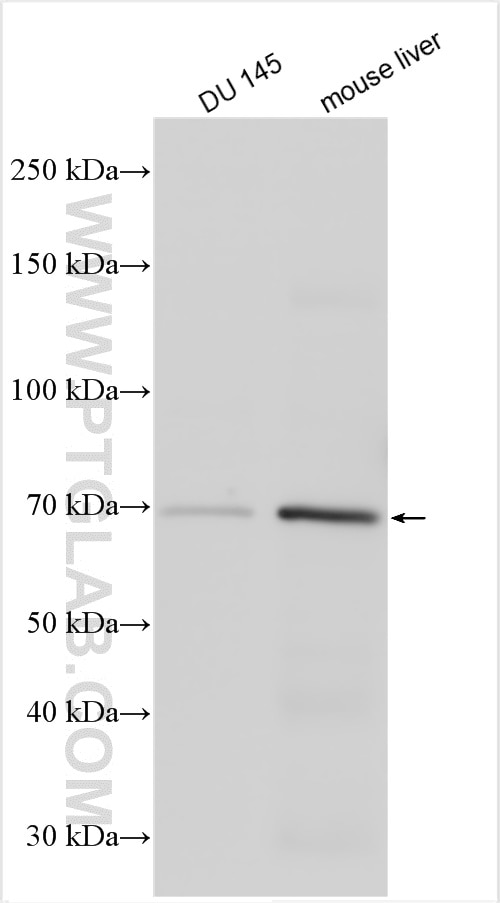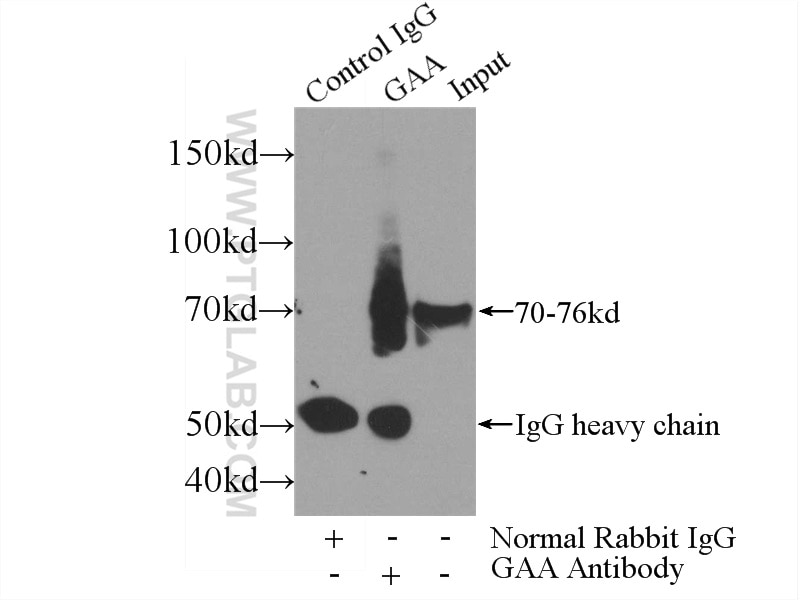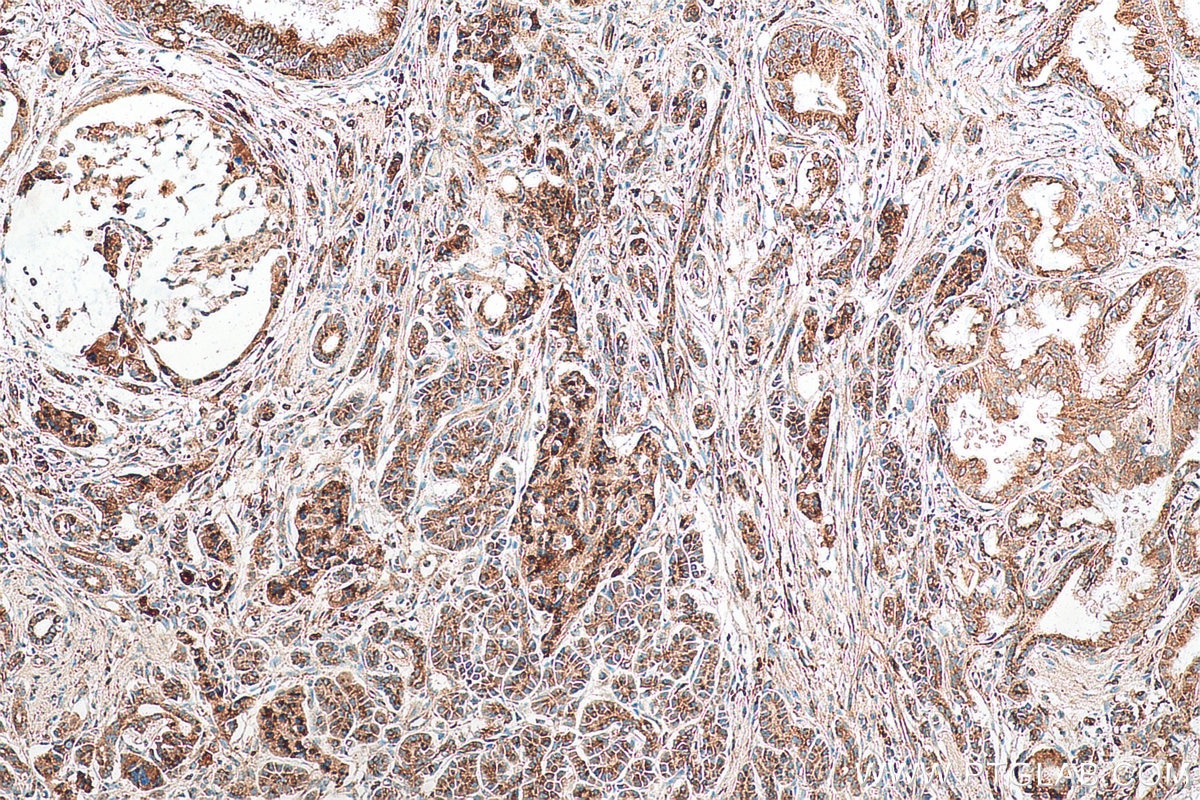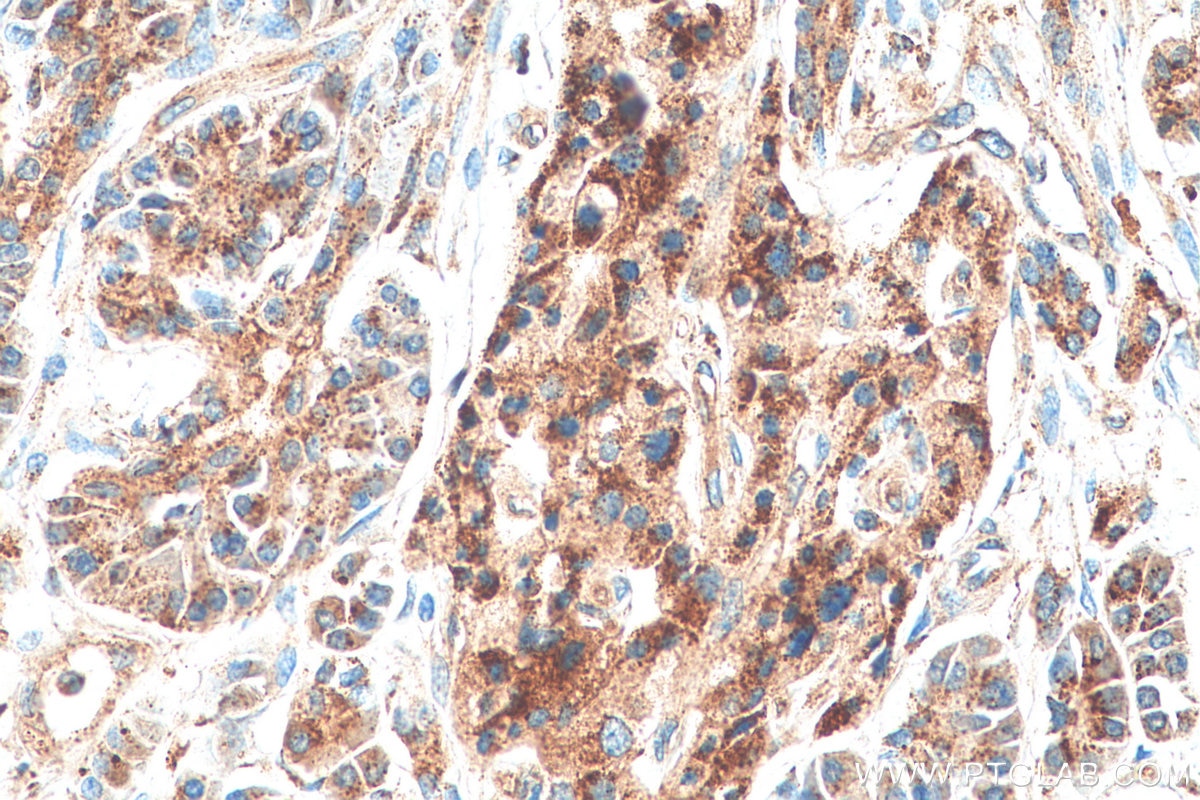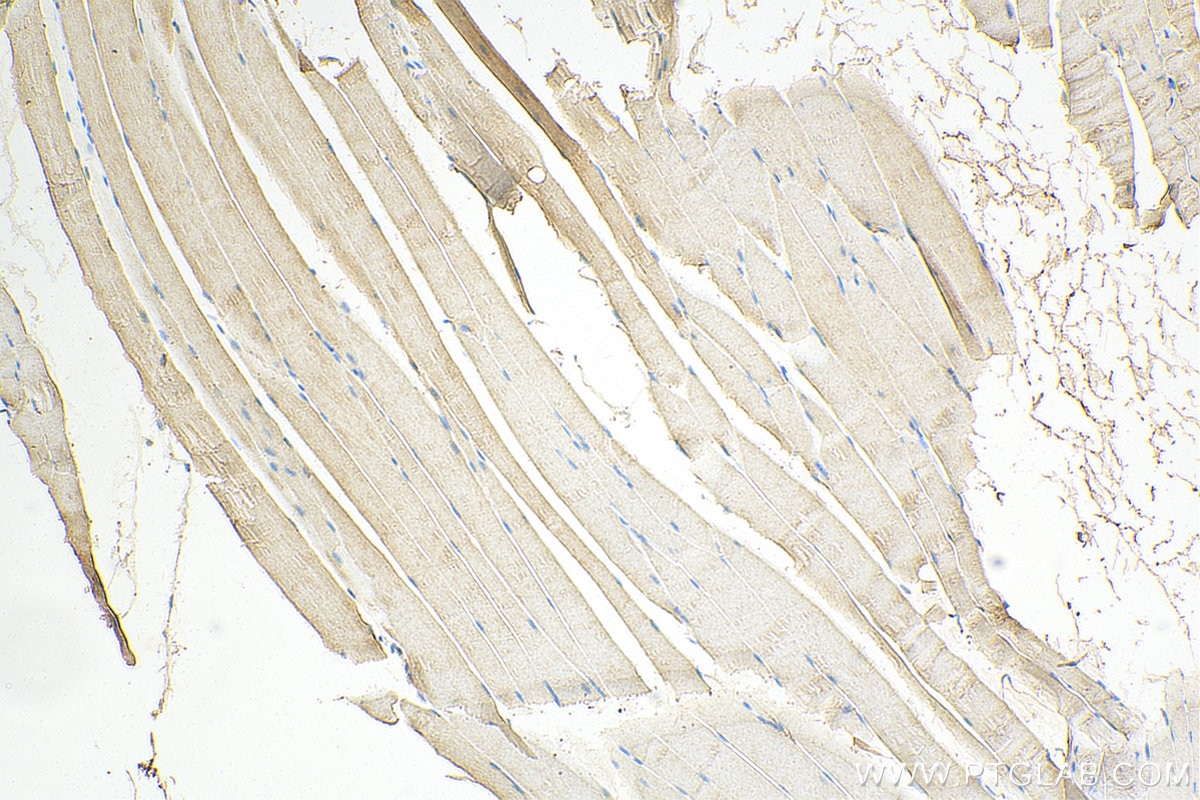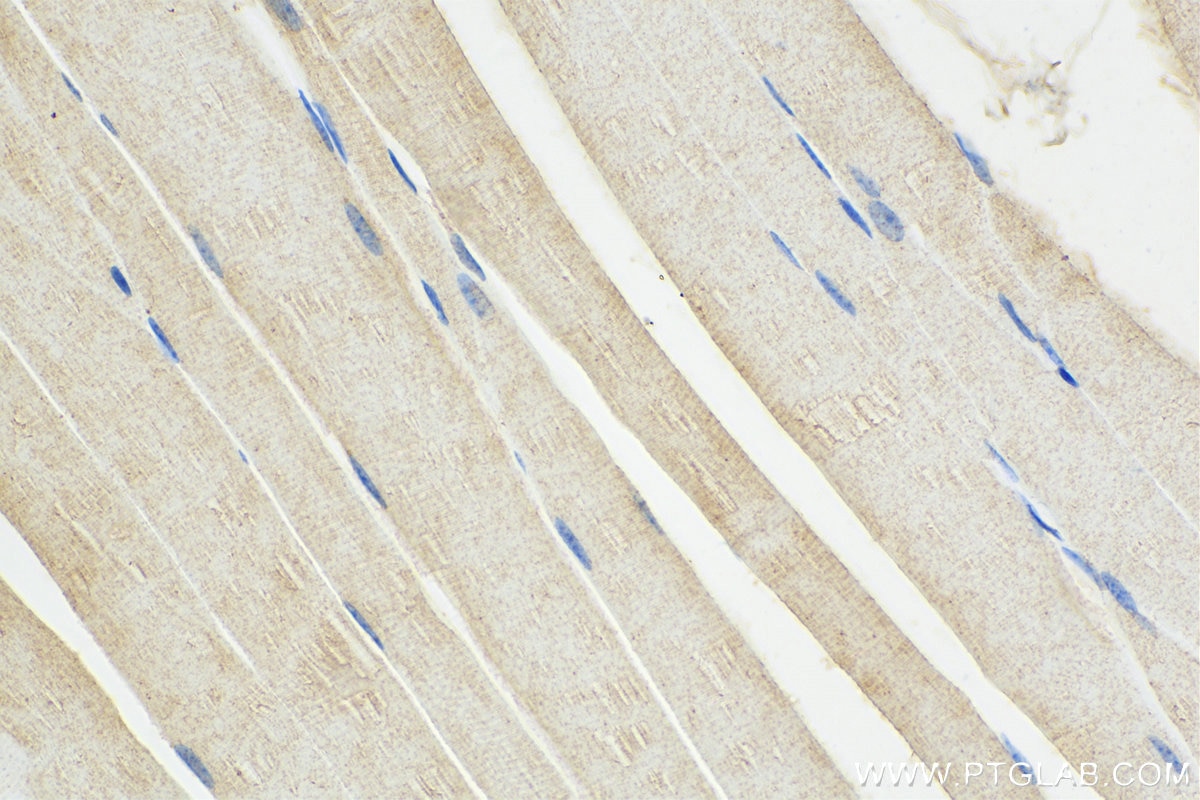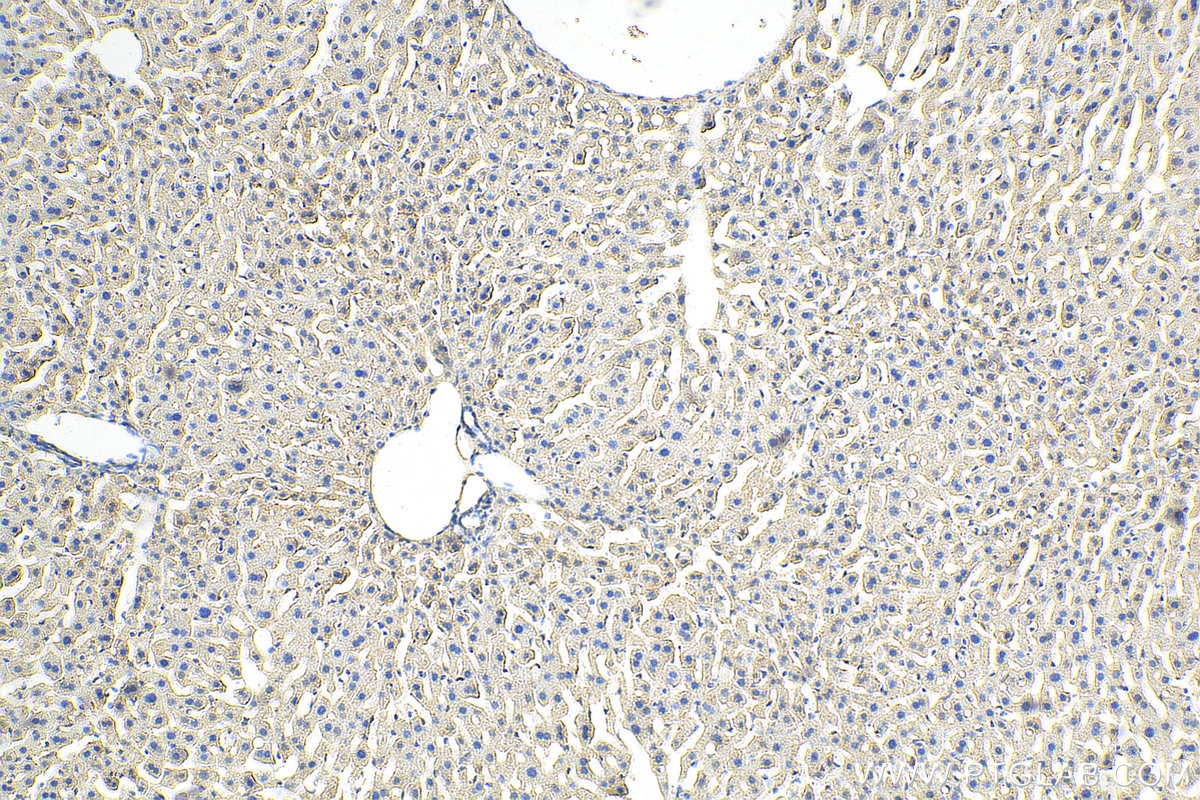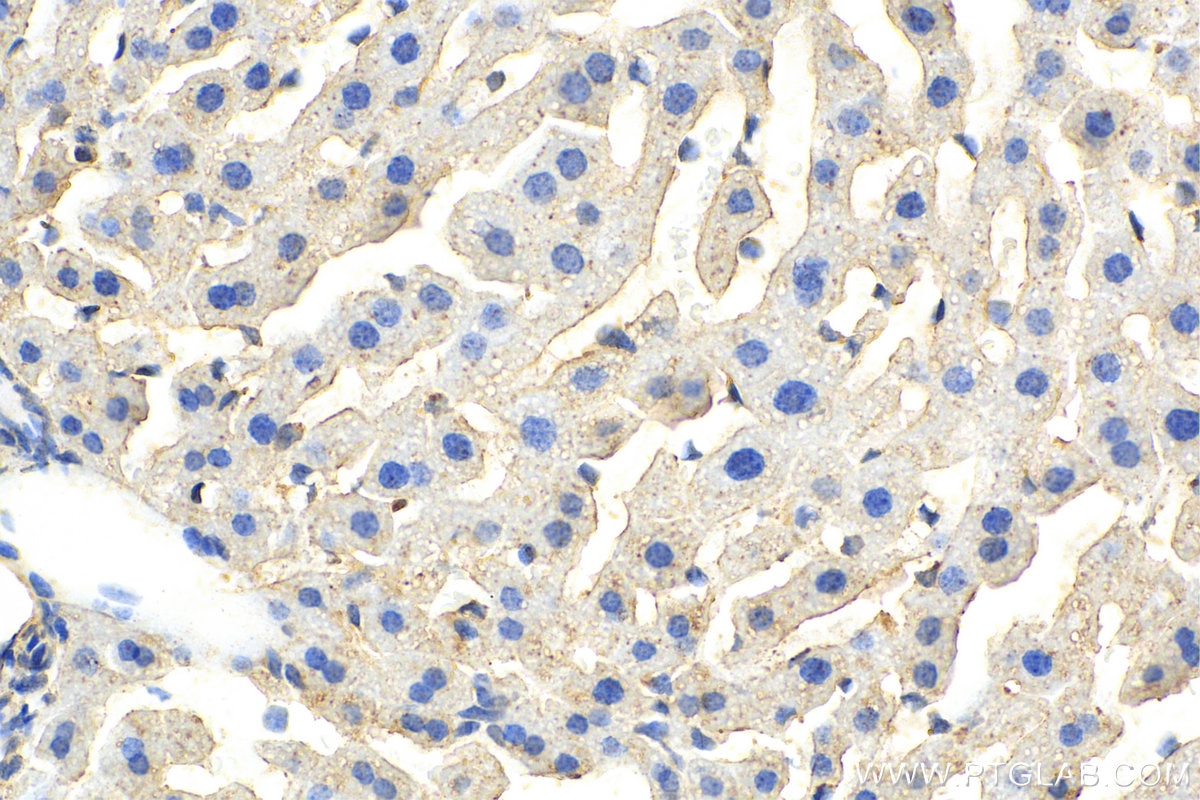GAA Polyklonaler Antikörper
GAA Polyklonal Antikörper für IHC, IP, WB, ELISA
Wirt / Isotyp
Kaninchen / IgG
Getestete Reaktivität
human, Maus und mehr (1)
Anwendung
WB, IP, IHC, IF, ELISA
Konjugation
Unkonjugiert
Kat-Nr. : 14367-1-AP
Synonyme
Galerie der Validierungsdaten
Geprüfte Anwendungen
| Erfolgreiche Detektion in WB | DU 145-Zellen, Mauslebergewebe |
| Erfolgreiche IP | Mauslebergewebe |
| Erfolgreiche Detektion in IHC | humanes Pankreaskarzinomgewebe, Mauslebergewebe, Maus-Skelettmuskelgewebe Hinweis: Antigendemaskierung mit TE-Puffer pH 9,0 empfohlen. (*) Wahlweise kann die Antigendemaskierung auch mit Citratpuffer pH 6,0 erfolgen. |
Empfohlene Verdünnung
| Anwendung | Verdünnung |
|---|---|
| Western Blot (WB) | WB : 1:500-1:2000 |
| Immunpräzipitation (IP) | IP : 0.5-4.0 ug for 1.0-3.0 mg of total protein lysate |
| Immunhistochemie (IHC) | IHC : 1:50-1:500 |
| It is recommended that this reagent should be titrated in each testing system to obtain optimal results. | |
| Sample-dependent, check data in validation data gallery | |
Veröffentlichte Anwendungen
| WB | See 1 publications below |
| IF | See 4 publications below |
Produktinformation
14367-1-AP bindet in WB, IP, IHC, IF, ELISA GAA und zeigt Reaktivität mit human, Maus
| Getestete Reaktivität | human, Maus |
| In Publikationen genannte Reaktivität | human, Zebrafisch |
| Wirt / Isotyp | Kaninchen / IgG |
| Klonalität | Polyklonal |
| Typ | Antikörper |
| Immunogen | GAA fusion protein Ag5690 |
| Vollständiger Name | glucosidase, alpha; acid |
| Berechnetes Molekulargewicht | 105 kDa |
| Beobachtetes Molekulargewicht | 70-76 kDa |
| GenBank-Zugangsnummer | BC040431 |
| Gene symbol | GAA |
| Gene ID (NCBI) | 2548 |
| Konjugation | Unkonjugiert |
| Form | Liquid |
| Reinigungsmethode | Antigen-Affinitätsreinigung |
| Lagerungspuffer | PBS mit 0.02% Natriumazid und 50% Glycerin pH 7.3. |
| Lagerungsbedingungen | Bei -20°C lagern. Nach dem Versand ein Jahr lang stabil Aliquotieren ist bei -20oC Lagerung nicht notwendig. 20ul Größen enthalten 0,1% BSA. |
Hintergrundinformationen
GAA(Alpha-1,4-glucosidase) is a lysosomal enzyme involved in the degradation of glycogen within cellular vacuoles. After translation, GAA undergoes proteolytic processing to form two lengths of lysosomal a-glucosidase, and both N-terminal and C-terminal processing occur. The full sequence can be further processed into a mature form. The 105 kDa GAA can be cleaved into 70 kDa or 76 kDa form.
Protokolle
| Produktspezifische Protokolle | |
|---|---|
| WB protocol for GAA antibody 14367-1-AP | Protokoll herunterladen |
| IHC protocol for GAA antibody 14367-1-AP | Protokoll herunterladen |
| IP protocol for GAA antibody 14367-1-AP | Protokoll herunterladen |
| Standard-Protokolle | |
|---|---|
| Klicken Sie hier, um unsere Standardprotokolle anzuzeigen |
Publikationen
| Species | Application | Title |
|---|---|---|
Nat Commun Spatial metabolomics reveals glycogen as an actionable target for pulmonary fibrosis | ||
J Med Chem 5-C-Branched Deoxynojirimycin: Strategy for Designing a 1-Deoxynojirimycin-Based Pharmacological Chaperone with a Nanomolar Affinity for Pompe Disease. | ||
Org Biomol Chem Introduction of C-alkyl branches to L-iminosugars changes their active site binding orientation | ||
DNA Cell Biol Disruption of the gaa Gene in Zebrafish Fails to Generate the Phenotype of Classical Pompe Disease. | ||
J Med Chem Design and Pharmacological Chaperone Effects of N-(4'-Phenylbutyl)-DAB Derivatives Targeting the Lipophilic Pocket of Lysosomal Acid α-Glucosidase |
Rezensionen
The reviews below have been submitted by verified Proteintech customers who received an incentive forproviding their feedback.
FH CHRISTINE (Verified Customer) (09-27-2019) | will continue to order here in the future.
|
